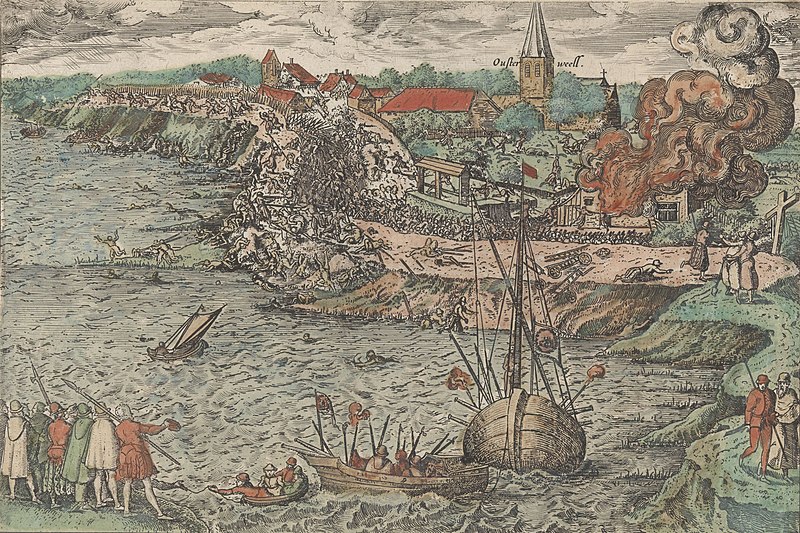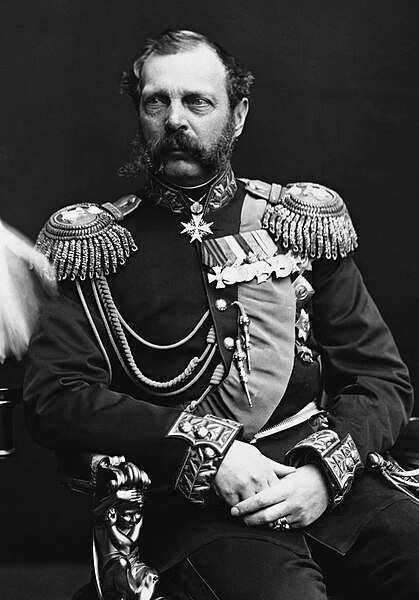March 13th is a day marked by a variety of significant events that have left a lasting impact on history. From moments of triumph to tragic occurrences and pivotal turning points, this date encapsulates the complexity of human experience.
In this article, we explore a selection of events from March 13th throughout history, offering insights into their enduring significance. Join us as we delve into the annals of history to uncover the rich tapestry of events that have shaped our world.
March 13th Events in History
624 – The Battle of Badr: Known as the first major battle in Islam, it was fought near the present-day city of Badr, Al Madinah Province in Saudi Arabia
The Battle of Badr, fought on 13 March 624, is considered the most significant and the first major battle of the Islamic prophet Muhammad’s life. The battle occurred in the Hejaz region of modern-day Saudi Arabia, near a well in Badr, between a small contingent of Muslims and the Quraysh tribe of Mecca.
Also Read: March 12 – On this Day in History
Despite being heavily outnumbered, Muhammad’s force of around 313 men, equipped with limited weaponry, defeated the Quraysh army of nearly 1,000 men.
This victory was pivotal for the growth of Islam and is celebrated as a turning point, marking it as a divine intervention and a testament to Muhammad’s leadership and the righteous path of his followers.
1138 – Cardinal Gregorio Conti is elected Antipope as Victor IV, opposing Pope Innocent II
In a period marked by political and religious turmoil, Cardinal Gregorio Conti was elected as Antipope Victor IV on March 13, 1138, opposing Pope Innocent II.
The election of an antipope typically occurred due to disputes within the Church or with secular rulers over the legitimacy of the pope’s election.
Also Read: March 14th Events in History
Victor IV’s claim to the papacy was part of a larger schism within the Catholic Church, reflecting the broader power struggles between different factions within the Church and European monarchies.
This event underscored the challenges to papal authority and the Church’s internal divisions during the Middle Ages.

1567 – The Battle of Oosterweel: Spanish forces destroy the Dutch rebel army near Antwerp, effectively ending the early stages of the Dutch Revolt
The Battle of Oosterweel took place on March 13, 1567, near Antwerp, and is often considered the starting point of the Eighty Years’ War, which led to the independence of the Dutch Republic. The battle was fought between Spanish troops and Dutch rebels, known as the Geuzen.
The rebels were decisively defeated by the Spanish forces, marking a temporary halt to the growing unrest against the rule of the Spanish Habsburgs in the Netherlands.
The defeat at Oosterweel, however, did not quench the Dutch desire for independence, which continued to grow, eventually leading to a prolonged conflict that reshaped the political landscape of Western Europe.
1639 – Harvard College is named after clergyman John Harvard
In 1639, a new college established in the Massachusetts Bay Colony was named Harvard College after John Harvard, an English clergyman and the institution’s first benefactor. Harvard, who died in 1638, bequeathed half of his estate and his library to the college, significantly contributing to its early development.
This donation was instrumental in the college’s establishment and growth, and Harvard is now recognized as the oldest institution of higher education in the United States.
The naming of Harvard College marks an important moment in the history of American education and the value placed on learning and scholarship in the early colonies.
1781 – William Herschel discovers Uranus (though he initially mistook it for a comet)
On March 13, 1781, William Herschel, a German-born British astronomer, made a groundbreaking astronomical discovery by identifying the planet Uranus. Initially, Herschel thought he had discovered a comet, but further observations and calculations by the astronomical community confirmed that he had, in fact, found a new planet.
Uranus’s discovery was monumental because it expanded the known boundaries of our solar system for the first time in modern history and challenged existing astronomical theories.
Herschel’s discovery of Uranus, the first planet discovered with a telescope, significantly contributed to the advancement of astronomy and remains a milestone in the exploration of our solar system.
1862 – The U.S. government forbids all Union army officers from returning fugitive slaves, effectively annulling the Fugitive Slave Act of 1850
On March 13, 1862, in a significant move during the American Civil War, the U.S. government issued General Order No. 3, forbidding all Union army officers from returning fugitive slaves. This marked a pivotal shift in the war’s focus, gradually aligning military actions with the moral and political goal of abolishing slavery.
The order effectively annulled the Fugitive Slave Act of 1850, which had compelled citizens to assist in the capture of escaped slaves and mandated their return to slaveholders.
By preventing the return of escaped slaves to their Confederate owners, the Union aimed to weaken the Confederacy’s economic resources, as enslaved people were a substantial part of the South’s labor force.
This order laid the groundwork for more comprehensive measures against slavery, culminating in the Emancipation Proclamation issued by President Abraham Lincoln later that year.

1881 – Tsar Alexander II of Russia is assassinated
Tsar Alexander II of Russia was assassinated on March 13, 1881, in Saint Petersburg. Known for implementing significant reforms, including the emancipation of the serfs in 1861, Alexander II was killed by members of the revolutionary organization Narodnaya Volya (The People’s Will).
The group sought radical changes and was disillusioned with the Tsar’s reforms, which they deemed insufficient. Alexander II’s assassination highlighted the growing discontent and social tensions within Russia, leading to increased repression under his successor, Alexander III, and setting the stage for the revolutionary movements that would eventually lead to the Russian Revolution of 1917.
1900 – British forces occupy Bloemfontein, South Africa, during the Second Boer War
On March 13, 1900, during the Second Boer War (1899-1902), British forces occupied Bloemfontein, the capital of the Orange Free State in South Africa. This was a significant event in the campaign to control the Boer Republics (the Orange Free State and the South African Republic).
The British aimed to consolidate their power over the gold-rich regions and assert imperial dominance in the area. The occupation of Bloemfontein marked a turning point in the war, leading to the eventual British victory and the annexation of the Boer Republics.
The war had far-reaching consequences for the region, leading to the formation of the Union of South Africa in 1910 and laying the groundwork for the apartheid system established later in the 20th century.
1920 – The Kapp Putsch briefly ousts the Weimar Republic government from Berlin
The Kapp Putsch was a right-wing coup attempt in Germany that took place on March 13, 1920. It was led by Wolfgang Kapp and other monarchist and nationalist groups who aimed to overthrow the Weimar Republic and restore the German monarchy.
The putsch was named after Kapp and was supported by parts of the German military (Reichswehr) and the Freikorps (paramilitary units).
Despite initially seizing control of Berlin, the coup failed within a few days due to a general strike called by the German workers’ unions, paralyzing the capital and making it impossible for the putschists to govern.
The Kapp Putsch highlighted the fragile state of the Weimar Republic and the deep divisions within German society following World War I.
1930 – The discovery of the planet Pluto is announced by Clyde Tombaugh at the Lowell Observatory
On March 13, 1930, the discovery of Pluto was officially announced by the Lowell Observatory in Flagstaff, Arizona. The discovery was made by Clyde Tombaugh, an American astronomer, who had been working on a project to locate a ninth planet, theorized by Percival Lowell and others to exist beyond Neptune.
The search for this planet was motivated by observed discrepancies in the orbits of Neptune and Uranus that suggested the presence of another distant planet. Pluto’s discovery was hailed as a major achievement in astronomy, expanding our understanding of the solar system.
However, in 2006, Pluto was reclassified as a “dwarf planet” by the International Astronomical Union, a decision that remains controversial among astronomers and the public.
1933 – Banks in the U.S. begin to re-open after President Franklin D. Roosevelt mandated a “bank holiday” to prevent mass withdrawals and stabilize the banking system
In early March 1933, during the Great Depression, President Franklin D. Roosevelt declared a nationwide bank holiday, temporarily closing all U.S. banks to prevent mass withdrawals and the subsequent collapse of the banking system.
This was one of his first actions as president, aiming to restore public confidence in the financial system. On March 13, 1933, after the passing of the Emergency Banking Act, which provided for the Federal Reserve to issue additional currency on good assets, banks began to reopen.
This move was crucial in stabilizing the banking sector, halting the series of bank failures, and was a key first step in the New Deal programs that sought to recover the U.S. economy from the Depression.

1954 – Battle of Dien Bien Phu: Viet Minh forces attack the French
The Battle of Dien Bien Phu was a decisive engagement in the First Indochina War (1946–1954), between the French Union’s French Far East Expeditionary Corps and Viet Minh communist-nationalist revolutionaries. Starting on March 13, 1954, and lasting until May 7, 1954, it took place in the Dien Bien Phu valley in northern Vietnam.
This battle was significant for being the first time a colonial power was defeated by a non-Western military force in a major set-piece battle.
The victory led to the Geneva Accords, ending the French colonial presence in Indochina and paving the way for the division of Vietnam into North and South, setting the stage for the Vietnam War.
1964 – Kitty Genovese is murdered in New York City, leading to research on the bystander effect
Kitty Genovese was murdered outside her apartment in Queens, New York City, on March 13, 1964. The case became infamous due to reports that multiple neighbors witnessed or heard the attack but failed to help or call the police, leading to widespread public discussion about what was later termed the “bystander effect” or “Genovese syndrome.”
This term refers to the psychological phenomenon where individuals do not offer help to a victim when other people are present. The case prompted research into social psychology and a reevaluation of community responsibility in preventing crime.
However, subsequent investigations into the case suggested that the initial reports were exaggerated and that some neighbors did attempt to intervene or call for help.
1979 – The New Jewel Movement, led by Maurice Bishop, overthrows the government of Grenada in a bloodless coup d’etat
On March 13, 1979, the New Jewel Movement, led by Maurice Bishop, overthrew the government of Grenada in a bloodless coup d’état. This movement ousted Prime Minister Eric Gairy, who was out of the country at the time, and established a People’s Revolutionary Government.
Maurice Bishop’s government initiated several socialist reforms in Grenada, aiming to improve education, healthcare, and workers’ rights. However, internal strife within the government led to Bishop’s eventual execution and a subsequent military intervention by the United States in October 1983, known as Operation Urgent Fury.
The events in Grenada were part of the broader Cold War tensions between the United States and the Soviet Union, as the U.S. sought to counter Soviet and Cuban influence in the Caribbean.
1988 – The Seikan Tunnel, the longest undersea tunnel in the world, opens between Aomori and Hakodate in Japan
The Seikan Tunnel, which opened on March 13, 1988, is a dual-gauge railway tunnel in Japan that connects the islands of Honshu and Hokkaido through a 53.85-kilometer (33.46 mi) route, with a 23.3-kilometer (14.5 mi) portion under the seabed.
At the time of its opening, it was the longest and deepest operational rail tunnel in the world and remained so until the Gotthard Base Tunnel in Switzerland was opened in 2016. The Seikan Tunnel’s construction was a major engineering feat, addressing challenges such as deep-sea water pressure, seismic activity, and the difficult geological conditions of the Tsugaru Strait.
The tunnel significantly improved transportation between Honshu and Hokkaido, facilitating both passenger and freight movement and symbolizing Japan’s post-war economic recovery and technological advancement.
1992 – An earthquake measuring 6.8 on the Richter scale hits Erzincan, Turkey, killing over 500
On March 13, 1992, a devastating earthquake struck the city of Erzincan in eastern Turkey. Measuring 6.8 on the Richter scale, this seismic event caused extensive damage to the city and its surrounding areas. The earthquake led to the loss of over 500 lives, with thousands injured and many more left homeless.
The destruction of infrastructure and homes necessitated a significant international relief effort and highlighted the vulnerability of the region to seismic activity.
The Erzincan earthquake of 1992 is remembered as one of the most destructive natural disasters in Turkey’s recent history, prompting improvements in earthquake preparedness and building regulations in the country.
1996 – The Dunblane school massacre takes place in Scotland, leading to tighter gun control laws in the UK
The Dunblane school massacre occurred on March 13, 1996, in the small Scottish town of Dunblane. A lone gunman, Thomas Hamilton, entered the Dunblane Primary School armed with handguns and opened fire on a class of five- and six-year-old children and their teacher, killing 16 children and the teacher before committing suicide.
It remains the deadliest mass shooting in British history. The tragedy shocked the nation and led to the UK enacting stringent gun control laws, notably with the Firearms (Amendment) Acts of 1996 and 1997, which severely restricted private ownership of firearms in Great Britain.
1997 – India’s Missionaries of Charity chooses Sister Nirmala to succeed Mother Teresa as its leader
After the death of Mother Teresa in September 1997, Sister Nirmala was chosen to succeed her as the head of the Missionaries of Charity, the order founded by Mother Teresa in Kolkata (Calcutta), India.
Sister Nirmala, who had been a close associate of Mother Teresa and headed the contemplative branch of the order, took over leadership responsibilities and continued the work of providing care for the poor, sick, orphaned, and dying.
Under her guidance, the Missionaries of Charity continued to expand its operations globally, adhering to the principles and humanitarian mission established by its founder.
2003 – Human Genome Project: Scientists announce that the human genome has been sequenced to 99.99% accuracy
On April 14, 2003, scientists announced the completion of the Human Genome Project, marking a significant milestone in the field of genetics. The project, which had begun in 1990, aimed to map and sequence the entire human genome.
By March 13, 2003, the project had successfully identified and sequenced nearly all of the approximately 3 billion DNA pairs in the human genome, achieving its goal with a reported 99.99% accuracy.
This monumental achievement has had profound implications for medicine, including the identification of genes associated with various diseases, enabling targeted therapies, and paving the way for advances in personalized medicine.
